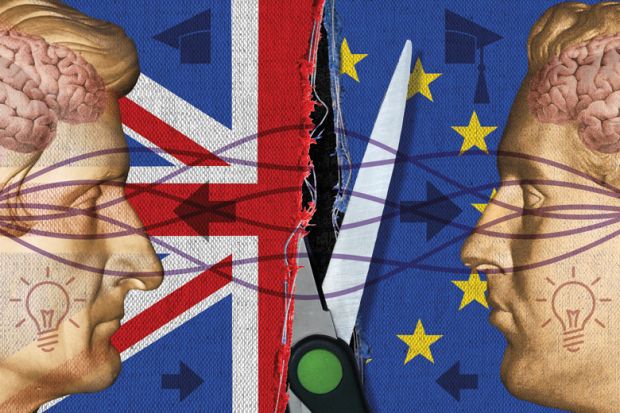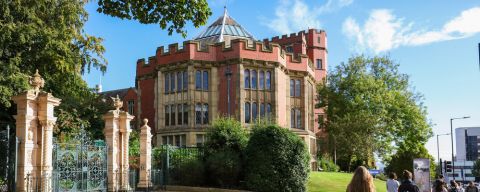All our EU Referendum results coverage in one place
So now we know.
After the debates have been had and all the votes have been counted, Britain has decided. After a lifetime in which I have felt part of a European project born out of conflict and hopeful of peace and trade, the majority of voters have decided that they no longer have faith in the European Union.
We are setting our course in a new direction, sailing into uncharted waters. I am not alone in wondering what it might mean.
These past few weeks have left me wondering what I should think of our country. I’ve been shocked at the opinions that some have been voicing. I have felt at times that I am not in the place where I grew up. Had I misunderstood what this land of my birth really is?
I have reflected on the fact that I have nearly always been a student in a university. I have had the blessing of living in a community of scholars in Boulder, Colorado, in London, in Oxford and now in Sheffield.
But I have also worried that our oasis of intellectual and societal tolerance is threatened by the storm that swirls around us. Could we even suffer a “Stockholm syndrome” and start sharing the emotions that live and breathe around us? Could we lose the centre of our lives as scholars?
In a democracy, one person’s vote counts no more and no less than that of another’s. Most of us would not have it any other way, even though we may sometimes feel that it does not keep us safe from error. But what next for all we treasure together in universities?
We who have made universities our life’s work know that we cannot be completely independent of the world around us and we don’t want to be. Our scholarship and students are deeply based on collaboration and a sense of education which owes so much to our Continent.
Yes, I am gutted that this is the decision that has been reached, and certainly not only for myself. I think of the great teachers and scholars from across the Continent who inspired me, but far more of the staff and students from other European countries who are with us now.
I wonder what they must be feeling, and think of what they have already said to me – practical questions about what this means for their daily lives, work opportunities and residency.
Academics engaged in projects with other EU universities drawing on EU funding wonder about the future of their work. What of Erasmus and other kinds of educational exchange? Brexit may have other consequences, too, on our economy or on the investment choices of our major commercial partners. It could mean further tightening of immigration rules.
The answer to such questions will no doubt take a while to become clear. In my life I have seen a number of significant votes (in this country and around the world) and the consequences have taken a while to understand.
But I am sure of one thing. A parting of ways in a political union must not mean a separation of scholarship or scholars and we must do all in our power to ensure this is so. We are part of a tradition of teaching and scholarship that is centuries old and that cannot be constrained by national borders. Now, as never before, it matters that we keep that flame alive.
My overwhelming sense is that we must keep damn close together as a community, remembering our purpose.
I also think that we will need to preserve what matters most to us now by proceeding with a common-sense approach to the changes and adopt the old method of “suck it and see”. Democracy may have presented me with the future I did not choose. What is in my power and yours is how we respond to the circumstances in which we find ourselves.
Over the referendum campaign we heard it said that the British people were tired of “the experts”. Others responded to our concerns by saying we were part of the elite that doesn’t care about the common man.
Well, I believe that we do care and that our work matters. Not just for ourselves but to all those individuals and communities who will need our medical breakthroughs, the impact of our science and innovation, and the profound insights of our social sciences, arts and humanities.
This country is home to many of the world’s great universities and they will continue to be global in outlook and in their impact. It is my fervent hope that UK universities will continue to offer a place of welcome to scholars and students from across the Continent and our world.
Together we must drive innovation in science, technology and medicine; understand our society through the ages and what we can be in the future; protect the food we eat on this planet.
We know that our home is a speck in a vast universe. But on that speck we have built observatories where we see the ripples in space-time from the truly violent events of far, far away.
We’ll do our best to learn and inspire future generations and to be a refuge – a refuge for those who seek a place where discovery and debate over ideas are its king and queen.
Sir Keith Burnett CBE FRS FRSW is vice-chancellor of the University of Sheffield and a member of the board of the Higher Education Funding Council for England.
Register to continue
Why register?
- Registration is free and only takes a moment
- Once registered, you can read 3 articles a month
- Sign up for our newsletter
Subscribe
Or subscribe for unlimited access to:
- Unlimited access to news, views, insights & reviews
- Digital editions
- Digital access to THE’s university and college rankings analysis
Already registered or a current subscriber?










